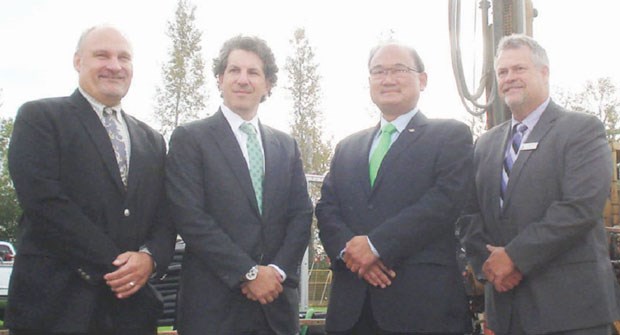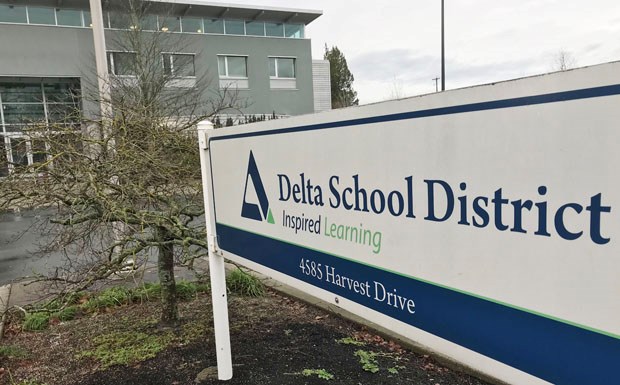The Delta School District is on the hook for millions due to an energy deal that’s gone awry.
In a recent decision handed down by the B.C. Utilities Commission, the district has been ordered to pay FortisBC a more costly rate for an energy system originally intended to save the district money.
A utilities commission panel determined “it is just and reasonable” for FortisBC Alternative Energy Services Inc. to recover the costs of providing service to the school district.
Several years ago the district entered into a deal with FortisBC Alternative Energy Services Inc. that saw the replacement of conventional natural gas boilers with new technology at 19 sites, including schools.

In a 2012 announcement that had much fanfare, it was noted the $6.4-million investment into thermal energy production facilities, which received utilities commission approval and also involved the B.C. Ministry of Environment, would lower the district’s energy usage by an estimated 45 per cent. Greenhouse gas emissions in the district were expected to drop by 69 per cent as a result of the 20-year-deal.
At the time the province mandated all public sector organizations be carbon neutral, which resulted in the school district having to purchase carbon offsets to the tune of $100,000 a year. The FortisBC project would eliminate the need to purchase those offsets.
Those savings, combined with reduced natural gas usage, meant the district was expected to save $180,000 a year through the initiative.
A grant through the Public Sector Energy Conservation Agreement provided the district with $1.4 million. Fortis paid the remainder and provided the district with a so-called “market rate” rather than a “cost of service rate” that would have been higher.
Last year Fortis applied to the utilities commission to not only switch the school district to the higher rate, which is now about $1 million more annually, but also get a back payment of almost $4 million.
Appearing before the commission last year on behalf of the district, which was disputing the Fortis application, legal counsel Dionysios Rossi stated, “The impact on my client's financial position is going to be very significant… school boards are legislatively prohibited from running deficits year to year. So the estimated $1 million in additional costs that will result from a switch to the cost of service rate at this time is going to have to come out of the program budget by which the district operates its schools.”
He asked the panel to carefully consider the consequences, adding it would mean an increase to the school district’s budget of about $1 million a year for the next 15 years.
A spokesperson for FortisBC told the Optimist earlier this year the contracts stipulated that after a period of time the district could elect to pay the cost of service rate or Fortis could apply to the commission to charge the rate.
Someone familiar with the deal when it was devised told the Optimist the cost of service rate was expected to be lower than what Fortis later sought because more customers were expected to sign up to be part of the thermal energy initiative. That interest didn’t materialize, which left the school district on the hook to pay much more than anticipated.
When it approved the original deal, the utilities commission wrote that it was concerned about the cost risks the district was assuming.
In its application, FortisBC Alternative Energy Services Inc. noted that while it is sympathetic to the district’s budgetary concerns to a point, the district has been benefitting from market rates that are even lower than what had been forecasted by the parties at the outset. It said the district has chosen to spend that unexpected benefit rather than set it aside.
Delta school board chair Laura Dixon was unavailable for comment this week. Earlier this year she referred a request for comment to a school board spokesperson who told the Optimist that at the time the agreement was signed the cost of service rate was expected to be lower than the market rate, which would have been beneficial to the district.
FortisBC explained that while it sought the higher rate that works out to about $1 million more annually from the school district, the roughly $4 million in back payment would only have to be paid off over the next 15 years.
As far as the district’s next move, spokesperson Jen Hill said school trustees are considering the available options, but the district could not speak to any specific plan at this time.
Hill said the district would incorporate the utilities commission decision into an amended budget early next year.
The school board recently approved an operating budget for next year that had no cuts and included a surplus of just under $57,000.



